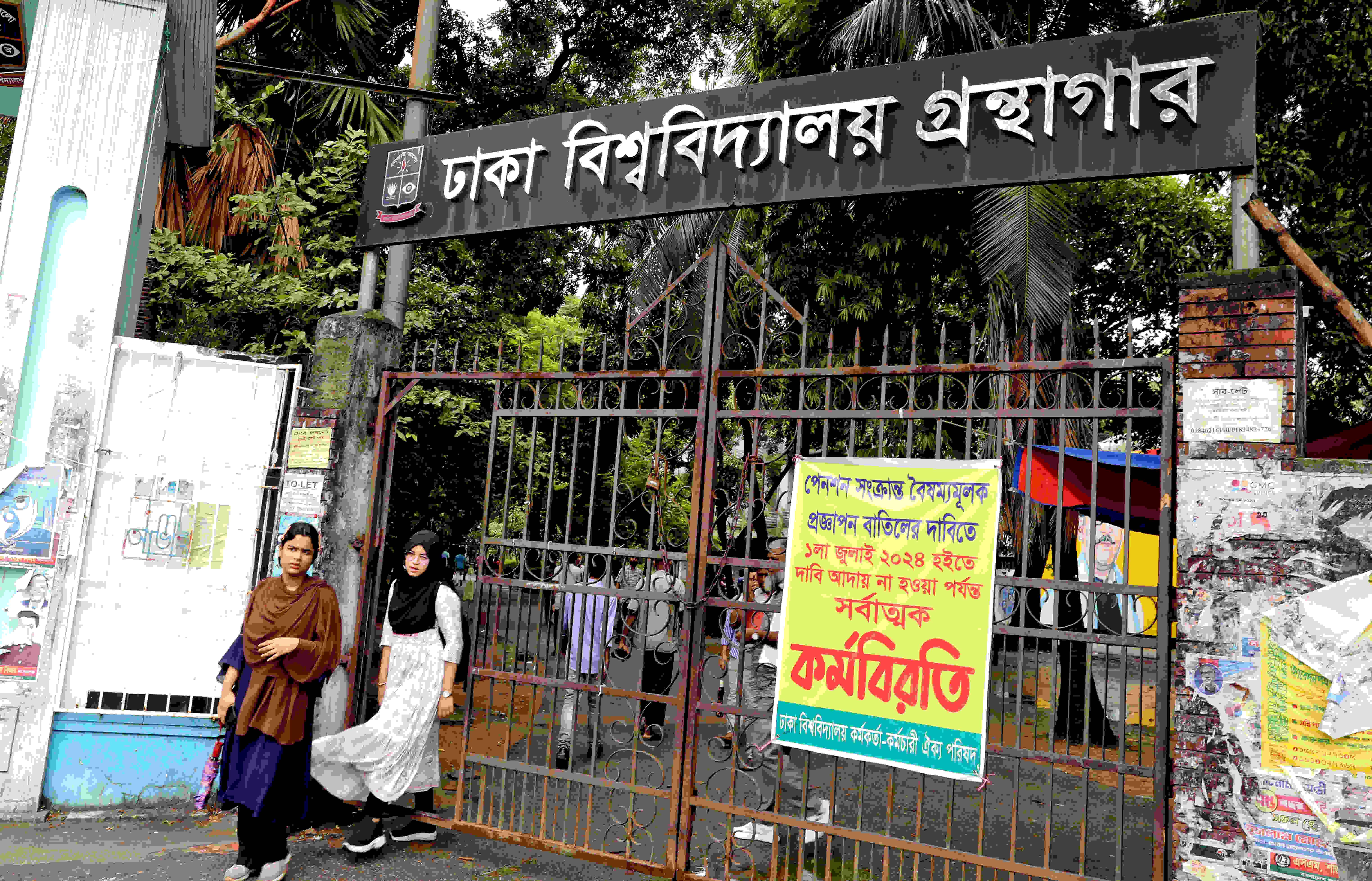An Islamic pension is crucial, but it must be done right

The elderly population in Bangladesh is increasing. According to the World Bank, life expectancy at birth now stands at 75.2 years and is projected to reach 80.9 years by 2050. During this period, the share of citizens aged 65 and above—generally deemed economically inactive—will double, pushing the old-age dependency ratio from 10.2 percent to 20.3 percent. This demographic shift raises an important question: who will care for the elderly?
Our traditional family-based support system, once the cornerstone of social security, is weakening due to urbanisation and migration. Smaller and single-person households are becoming more common. Dependence on working-age family members is no longer as reliable as it once was, as many struggle with job insecurity, inflation, and rising living costs. As these social dynamics evolve, millions risk entering old age without dependable family support.
Without an inclusive and sustainable pension system, Bangladesh could face a new form of poverty: longevity without financial security. Recognising this looming challenge, the government launched the Universal Pension Scheme (UPS) in August 2023 under the Universal Pension Management Act. The National Pension Authority (NPA), established earlier that year, aims to bring the majority of citizens under the scheme to ensure financial dignity in retirement.
The UPS currently offers four schemes for citizens aged 18 and above: Probash, Progoti, Surakkha, and Samata. Under these schemes, participants receive a monthly pension for life upon reaching the age of 60. If a participant passes away before turning 75, the pension continues to be paid to the nominee until the age the participant would have reached 75. In the event of death before becoming eligible for pension payments, the accumulated contributions—along with any earned profits—are returned to the nominee. Participants may also borrow up to 50 percent of their total contributions. These contributions are tax-deductible, and any pension income is fully tax-exempt.
Despite these benefits, enrolment has been persistently slow. As of June 30, 2025, only 373,987 participants have joined—just 0.37 percent of the NPA's ultimate target of 10 crore—with only 1,600 new sign-ups since October 15, 2024 (when the total was 372,387). Limited public awareness, policy uncertainty following the mass uprising, and concerns over nominee protection may have contributed to this sluggish response.
However, in a Muslim-majority country like Bangladesh, a more fundamental reason may lie in the absence of Islamic alternatives. Recognising this gap, the NPA approved a plan in May to develop Islamic versions of the UPS schemes and engaged Asian Development Bank-funded consultants to design them. This initiative presents a significant opportunity to expand pension coverage, but its success will depend on effectively addressing not only the Shariah compliance requirements but also the structural weaknesses of Bangladesh's Islamic finance ecosystem.
For the Islamic UPS to function effectively, viable Islamic investment avenues are crucial. However, Bangladesh's Islamic capital market remains shallow. Only two corporate sukuk have been issued so far, one of which is listed but trading at around half its face value despite regular coupon payments. In the equity market, roughly one-third of listed securities on both stock exchanges are deemed Shariah-compliant. Most of these are illiquid small-cap stocks and include Islamic banks currently engaged in merger discussions or dealing with high levels of non-performing assets.
In the sovereign sukuk segment, six issuances worth Tk 24,000 crore have been made to date. These sukuk offer lower returns than conventional treasury instruments, and neither a secondary trading platform nor an issuance calendar has yet been established. Yet all have been oversubscribed, indicating strong demand for secure Islamic instruments. The launch of an Islamic UPS would amplify this demand and is likely to create idle liquidity in the market unless more investment channels are developed.
It is important to note that the Islamic UPS must not become a mere conduit for government borrowing. Overreliance on sovereign sukuk could turn it into a deficit-financing tool rather than a driver of productive investment. As of the last count, about 95 percent of UPS funds have been invested in government bonds. The NPA should work with other regulators to make the system capable of diversifying into Islamic equities, real estate, infrastructure, and money markets, in addition to fixed-income instruments.
A robust regulatory framework will be essential to manage Islamic UPS funds in accordance with Shariah principles. This includes clear rules for profit distribution, surplus and deficit management, and performance guarantees. Existing pension and financial regulations seem to have been drafted without considering an Islamic alternative, and several provisions conflict with Islamic finance principles. Therefore, effective coordination among regulators will be critical to harmonising and streamlining the overall regulatory framework.
Equally important is building public trust. Islamic finance initiatives in Bangladesh often face early scepticism due to limited awareness. The Islamic UPS should, therefore, be launched only after wide engagement with religious and community leaders as well as financial experts. Public consultations, transparent disclosures, and credible Shariah certification will be key to its acceptance.
The NPA must also establish a competent Shariah Supervisory Committee (SSC) to oversee compliance. SSC members, often mistakenly assumed to be experts by default, should receive structured capacity-building and technical support to perform their oversight roles effectively. Periodic reports on the Islamic UPS should be produced, including the SSC's opinions, income purification details, and Shariah audit outcomes. Islamic UPS portfolios should be ring-fenced, and the IT systems should be capable of ensuring this control.
Ultimately, the success of any pension system depends on competent fund management. Bangladesh currently faces an acute shortage of actuaries and professional fund managers. A recent report noted that while the country needs about 30-40 actuaries, it has only three or four, and not all are based in Bangladesh. The shortage is even more pronounced in Islamic finance, which has a narrower investment universe and requires expertise in both finance and Shariah. Encouragingly, the government is considering establishing a dedicated actuarial institute.
Bangladesh has taken a commendable step by recognising the need for an Islamic UPS. However, it should be envisioned not merely as a retirement plan or a religious initiative, but as a transformative institutional investor capable of reshaping Bangladesh's financial ecosystem. This ambition must be matched by preparation, and the scheme must be designed and managed with professionalism and integrity. It must go beyond replicating conventional models, with its pricing and fund management strategies reflecting genuine Islamic principles rather than conventional benchmarks presented in Islamic form.
Mezbah Uddin Ahmed is research fellow at the ISRA Institute of INCEIF University, Malaysia. He can be reached at mezbah-isra@inceif.edu.my.
Views expressed in this article are the author's own.
Follow The Daily Star Opinion on Facebook for the latest opinions, commentaries, and analyses by experts and professionals. To contribute your article or letter to The Daily Star Opinion, see our guidelines for submission.




 For all latest news, follow The Daily Star's Google News channel.
For all latest news, follow The Daily Star's Google News channel. 

Comments